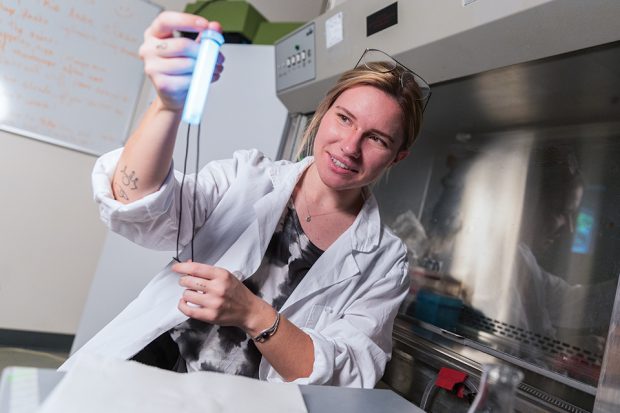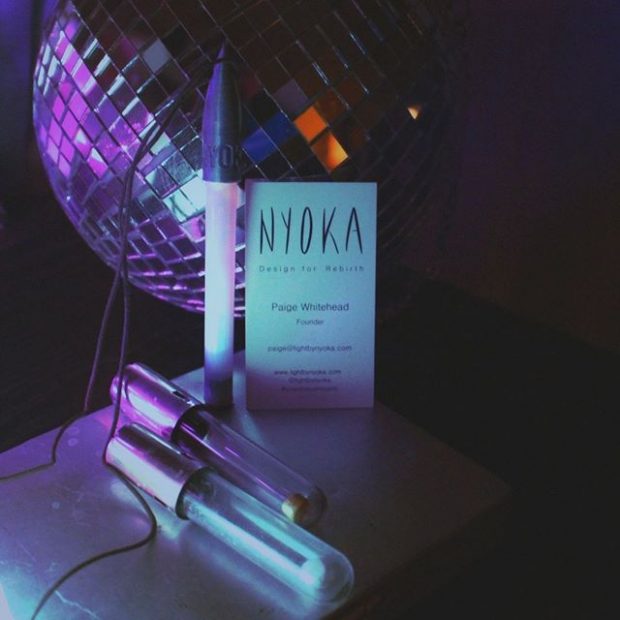[et_pb_section fb_built=”1″ _builder_version=”3.22″][et_pb_row _builder_version=”3.25″ background_size=”initial” background_position=”top_left” background_repeat=”repeat”][et_pb_column type=”4_4″ _builder_version=”3.25″ custom_padding=”|||” custom_padding__hover=”|||”][et_pb_text _builder_version=”3.27.4″ background_size=”initial” background_position=”top_left” background_repeat=”repeat”]UVic student Paige Whitehead has developed a biodegradable, bioluminescent glow stick that not only dissolves harmlessly wherever it’s discarded, but actually improves the soil.
Paige was inspired to create a biodegradable light source at Shambhala music festival, BC, where she noticed plastic glow sticks left all over the festival grounds.

“Anyone who goes to a music festival knows that you end up with glow sticks everywhere on the ground, and that it’s a real problem. I started sending emails to researchers and searching for what was out there. That led to connections with research teams who’ve been working on developing bioluminescence in the lab that can be made into a viable light source, among other things.” — Paige Whitehead, UVic Microbiology and Environmental Studies student
Her new design uses a compostable seaweed casing, a reusable metal cap, and bioluminescent enzymes that light up when you add water. While the first run of light stick sales is set for 2019, her company Nyoka Design is already working on new product ideas. One prototype acts as a mushroom “seed bomb,” and the company also hopes to make customized casings for different music festival locations, with restorative microbes hand-picked to match the needs of the area.
Early in the development of her project, Paige attended our 3D Design, 3D print, and Arduino workshops. She used some of the skills from the 3D Design workshop to create a prototype cap for her light stick. While the final cap will be made of metal, the prototype cap was 3D printed.
Paige also looked at using biodegradable plastic in her design, but ultimately plastics like the PLA used in our 3D printers will only break down in the heat of a commercial composter, while Paige’s light sticks need to disintegrate along the surface of festival fields.

We are so happy for the success Paige is having, and that we were able to help fill a small gap in the skills she needed to create her glow stick prototype through our workshops. This is an excellent example of the hands-on, just-in-time learning that we strive to provide in the DSC.
If you want to contribute startup money, the Nyoka Light wand has a pre-production GoFundMe page, and 5% of all donations go towards bioluminescent bay conservation. An official crowdfunding campaign will be launched once the full prototype is ready for market.
To learn more about Paige’s project, please read this UVic news article or visit the Nyoka website.
[/et_pb_text][et_pb_post_nav prev_text=”%title” next_text=”%title” _builder_version=”4.4.7″ global_module=”4392″][/et_pb_post_nav][/et_pb_column][/et_pb_row][/et_pb_section]
